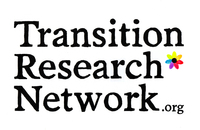Detached Research
This pattern explores the role and appropriate conduct of research undertaken by external researchers without direct involvement in the practice of Transition or direct collaboration with Transition groups.
+context
Although collaborative approaches are more consistent with the ethos of Transition and more likely to have immediate practical value for participating Transition initiatives, more detached research can have positive benefits. Contributions to Transition can include impartial overviews and constructive critical assessment that contribute to building an evidence base/knowledge base, inform practice, and support evaluation. However, it implies a very different set of relationships and potential benefits, and has a very different relationship to the principle of research as activism.
+problem
Collaborative and participatory approaches are not appropriate in all types of research, nor do they fit the professional and personal strengths of all researchers. More traditional forms of research raise familiar dangers of drawing upon the time and energy of overstretched activists, often volunteers, and exposing potentially fragile groups to inappropriate forms of critical scrutiny. Some caution is necessary to establish when it makes sense for researchers to work in more detached ways, and how under these circumstances to ensure that such research does not negatively impact upon the Transition groups involved.
+background
There are a number of situations in which detached approaches to research may be appropriate. Research that aims to develop an evidence base, especially to inform policy, often appears more credible when researchers demonstrate a critical distance from the topic of their research. Such research can make important contributions within as well as beyond Transition. A good example is that of Gill Seyfang and colleagues at the University of East Anglia and within the Grassroots Innovations programme, that includes substantial case study material and critical assessment on Transition itself, and on overlapping areas of activity like local food, community energy, and complementary currencies(1). Outputs include the first broad survey of UK Transition initiatives in 2008(2), at the time the first overview of the movement, now an important point of historical reference. Other work has assessed discourses around key concepts such as resilence(3), and the role of Transition in the broader community energy movement(4). Peter North at Liverpool University has hands-on experience of Transition at the grassroots level, having contributed to founding a Transition initiative in Liverpool, but in his published academic work takes the perspective of a sympathetic critic(5), again providing important input into reflection and self-assessment within Transition.
Some such research can rely on existing data or synthesis from existing sources. Like North's work, it may indirectly derive from practical contributions the researcher in any case makes as a volunteer within their Transition group. This can raise confidentiality and other ethical issues, but in a group in which good interpersonal relationships prevail the researcher should be well-placed to address these. When primary research is needed, this inevitably impacts on the time and energy of the people who are contributing data. Seyfang's original survey achieved a very high response rate, despite not offering any form of concrete incentive. It is likely that in this case people's enthusiasm for making contributions the new, young Transition movement was motivation enough - no survey conducted since, including Transition Network's own data-collecting efforts, has matched the response rate. Particularly when more demanding and/or intrusive methods like interviews, focus groups and participant observation are involved, it may make more sense to use action research methods to build practical outcomes into data collection processes, or to identify suitable mechanisms for sharing resources.
When Transition groups have their own research needs, the best way to fulfil these may be simply to commission a researcher - for example, a student undertaking dissertation research - without them getting involved in the initiative any more deeply.
